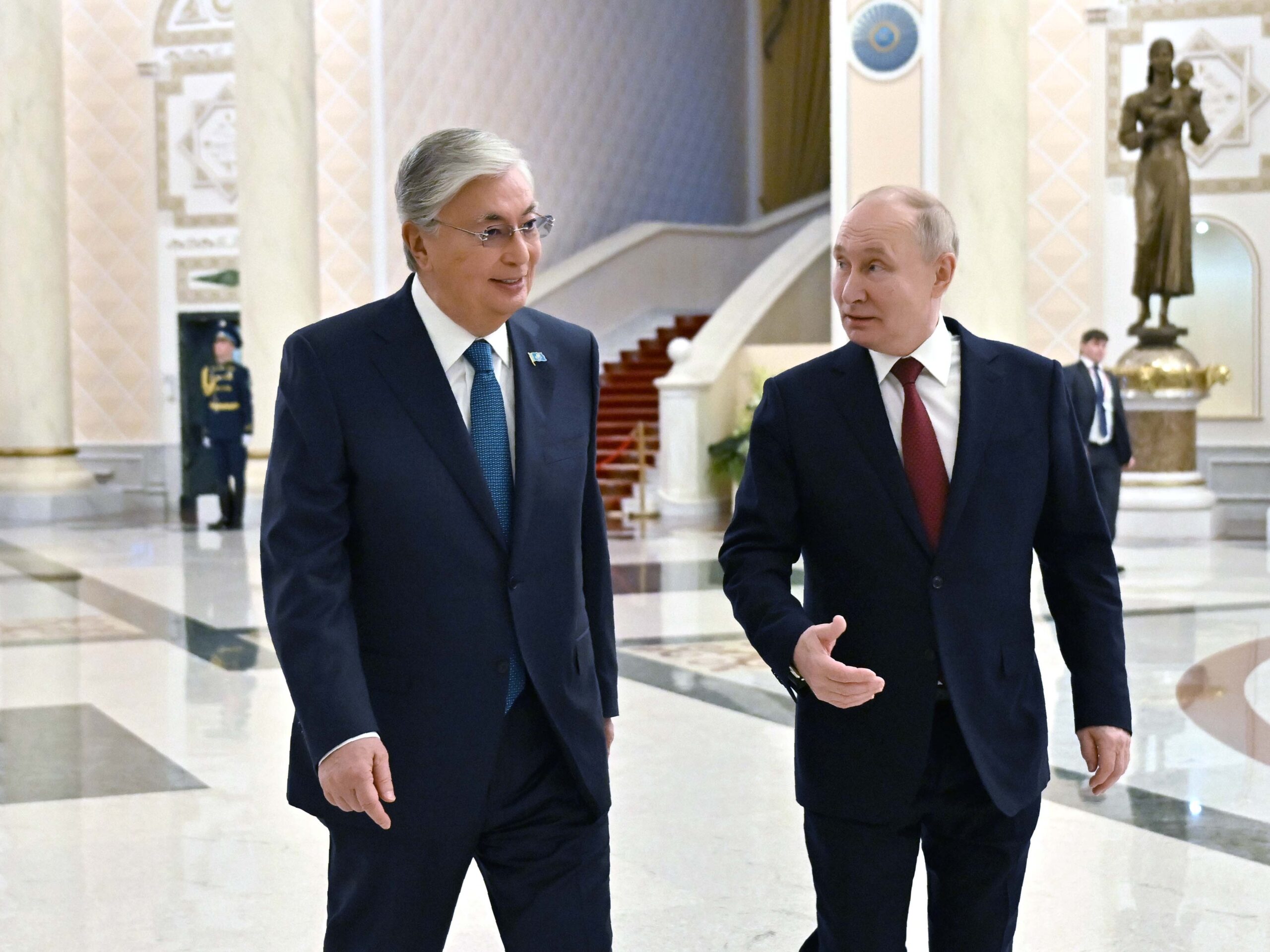Putin and Tokayev Reaffirm Strategic Partnership Amid Shifting Regional Dynamics
In a meeting at the Kremlin on November 11, Russian President Vladimir Putin and Kazakh President Kassym-Jomart Tokayev reaffirmed the strategic partnership between their countries. The discussion, held in a friendly and seemingly constructive atmosphere, underscored the importance both leaders place on maintaining strong bilateral ties at a time of considerable geopolitical transformation in Eurasia.
Putin thanked Tokayev for his visit to Moscow and emphasized that the two leaders remain in regular contact. According to the Russian president, the talks would cover “the entire agenda of bilateral relations,” including political, economic, and humanitarian cooperation. He expressed optimism about the trajectory of Russian-Kazakh relations, noting that the two sides are “finishing the year well” and are preparing plans for the near and medium-term future.
Tokayev, for his part, described Putin as an “elder colleague” and expressed gratitude for the warm reception. He stressed that Kazakhstan and Russia share a relationship characterized by “strategic partnership and allied cooperation,” adding that there are “no serious problems” in their state-to-state relations. The Kazakh president also highlighted his intention to share views with Putin on international developments, a signal that Kazakhstan continues to pursue a balanced diplomatic approach amid growing global tensions.
The meeting took place in Putin’s representative office in the Kremlin in a one-on-one format, reinforcing the personal dimension of the dialogue between the two leaders. In a symbolic gesture of friendship, Moscow’s Ostankino Tower was illuminated in the colors of Kazakhstan’s national flag during Tokayev’s visit.
Tokayev’s two-day trip to Russia comes as both nations navigate a complex regional environment. While Russia remains Kazakhstan’s largest trading partner and a key ally in organizations such as the Eurasian Economic Union and the Collective Security Treaty Organization, Astana has also worked to strengthen ties with China, the European Union, and other global actors. This reflects Tokayev’s broader strategy of maintaining Kazakhstan’s multi-vector foreign policy, one that seeks cooperation with all major powers without overdependence on any single one.
For Moscow, reaffirming close ties with Kazakhstan serves not only economic interests but also a strategic purpose. As Russia faces isolation from much of the Western world, maintaining strong partnerships within its near abroad is increasingly important. Kazakhstan’s vast resources, geographic position, and political stability make it a particularly valuable partner.
Although no major agreements were announced following the meeting, both sides emphasized continuity and trust are key themes in Russian-Kazakh relations. The rhetoric of “strategic partnership” and “allied cooperation” suggests that both governments are eager to project unity and stability, even as they quietly navigate the evolving realities of post-Soviet geopolitics.
In a region where political balance often depends on subtle diplomacy, the Kremlin meeting highlighted that the Moscow-Astana relationship remains resilient. Both leaders appear intent on ensuring that their partnership adapts, rather than fractures, amid the shifting currents of global politics. However, Kazakhstan seems to follow more independent and more balanced foreign policy among great powers.
